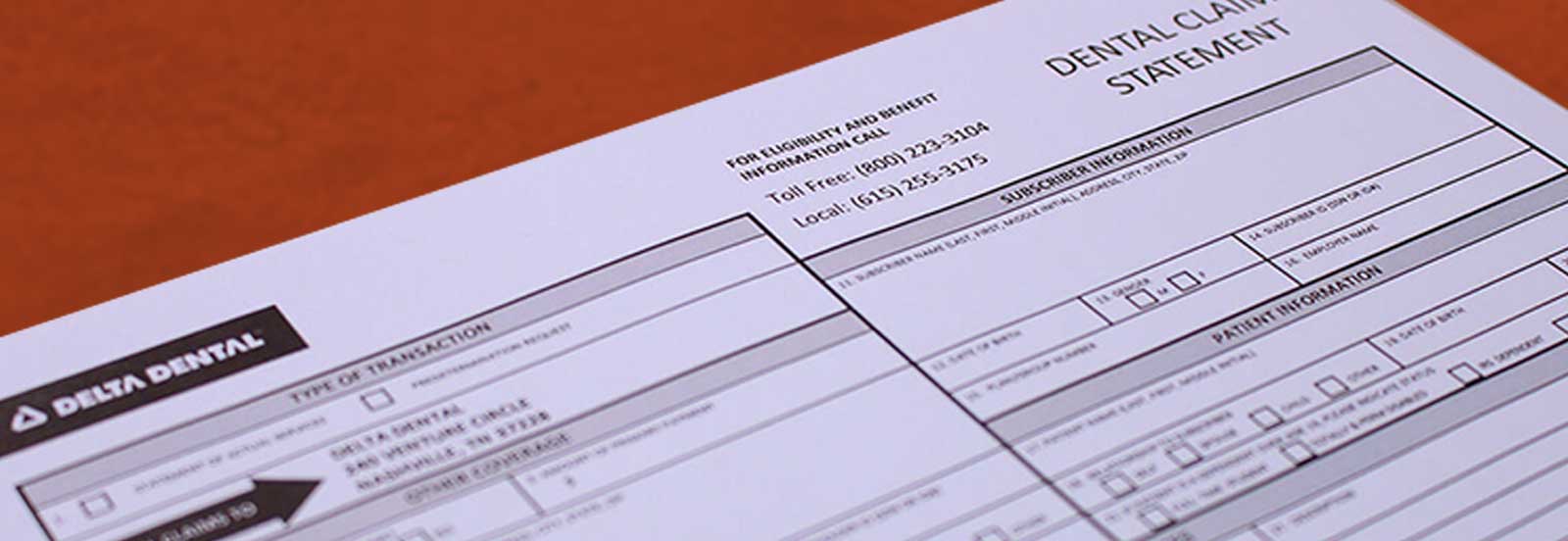Coordination of Benefits
Coordination of Benefits (“COB”) applies when you or your Enrolled Dependent has more than one dental insurance plan. In such cases, you or your Dental Provider should file a Claim with both plans, so that the plans can coordinate covered benefits and reimbursement of the Claim.
When a COB situation happens, we must:
- Pay the Claim correctly by looking at all dental plans and benefits for you or your Enrolled Dependent who received Services;
- Figure out the priority of payments for the coordination of covered benefits between the dental plans; and
- Coordinate payments in a way that does not exceed the maximum limits or actual dental bills.
For these reasons, there is no guarantee that 100% of the charges for a Claim will be paid, even if you have more than one dental plan.
A. Cooperation
You and your Dental Provider are required to provide us with information about all dental plans, so that we can properly coordinate covered benefits and pay your Claim as required by law and this Evidence of Coverage. Please know that we may release or obtain required information to other dental plans to coordinate covered benefits and pay the Claim. It is important for you and your Dental Provider to submit the Claim with all dental plans so that everyone is aware of other coverages.
B. Coordination of Maximums and Duplications
Know that that each dental plan will have its own Annual Maximum Limit and Lifetime Maximum Limit (“Maximums”). In coordinating covered benefits, the combined covered benefits from the dental plans cannot exceed the higher of the two Maximums. Total benefits received from multiple dental plans also cannot exceed the actual dental expenses incurred. Note that any Deductibles, Copays, and Coinsurance amounts will be applied before Benefits are paid for a Claim.
C. Primary and Secondary Coverage
If you have multiple dental plans, one plan will be designated as the primary plan. The other dental plan will be considered the secondary plan. The primary plan shall pay covered benefits first, up to its coverage limits. The secondary plan shall pay any remaining eligible expenses for covered benefits Services based upon its coverage guidelines.
D. Determining the Primary Plan
To figuring out which dental plan is primary, we will consider whether you or your Enrolled Dependents are involved in the Claim and look at the COB provisions of the dental plans under the following rules:
1. Medicaid, Medicare, or Indian Health Services Rule. We will typically be the primary plan of any covered benefits payable by Medicaid, Medicare, or the Indian Health Services as follows:
- a. Medicare If any Enrolled Persons are enrolled in Medicare, then the Benefits provided by the Plan are not designed to duplicate any benefits that you or your Enrolled Dependents may be entitled to under the federal Social Security Act. Covered Benefits will be coordinated according to applicable federal law;
- b. Medicaid If You or your Enrolled Dependents are enrolled under the New Mexico Medicaid Program, then Benefits payable under this Plan will be paid to the New Mexico Human Services Department (“HSD”), or its successor or designee, when: (i) HSD has paid or is paying covered benefits on behalf of you or your Enrolled Dependent; or (ii) the payment for covered benefits has been made by HSD to the Medicaid dental provider; or
- c. Indian Health Service or Tribal 638 Program We will be the primary plan for any covered benefits payable by the Indian Health Service or 638 program unless otherwise prescribed by law.
2. Non-Coordination of Benefits Plan Rule If the other dental plan does not coordinate benefits, then the other dental plan will be the primary plan. This Plan will be the secondary plan.
3. Hospital, Surgical, Medical, or Other Coverage Rule Any medical, surgical, hospital, prescription drug plan, motor vehicle (including no-fault policies), or homeowner’s insurance that provides dental-related benefits such as dental treatment due to accidental injuries, surgical extraction of impacted wisdom teeth, oral surgery, the administration of general anesthesia, or TMJ will be the primary plan. This Plan will be the secondary plan.
4. Employee/Dependent Rule If both dental plans coordinate benefits, then:
- a. the dental plan that covers you or your Enrolled Dependent as an Employee or Subscriber will be the primary plan; and
- b. the dental plan that covers you or your Enrolled Dependent as a Dependent (or beneficiary under ERISA) will be the secondary plan unless both dental plans agree that COBRA or State continuation of coverage will be the secondary plan when the person who elects COBRA is covered by another dental plan as a Dependent.
5. Dependent Children Covered Under Multiple Plans Unless a parent is decreed by a court of law to have primary responsibility for dental coverage, the dental plan covering a dependent child shall determine the order of payment as follows:
- a. For a dependent child whose parents are married or are living together (whether or not they have ever been married):
- i. The dental plan of the parent whose birth date falls earlier in the calendar year is the primary plan; or
- ii. If both parents have the same birth date, the dental plan that has covered the parent the longest is the primary plan.
- b. For a dependent child whose parents are divorced, separated, or not living together (whether or not they have ever been married):
- i. If a court decree states that one parent is responsible for the dependent child’s health care expenses or coverage and the plan of that parent has actual knowledge of those terms, then that dental plan is the primary plan. If the parent with responsibility has no health care coverage for the dependent child’s health care expenses, but that parent’s spouse does, then that parent’s spouse’s dental plan is the primary plan. This will not apply for any plan year during which benefits are paid or provided before the plan has actual knowledge of the court decree provision;
- ii. If a court decree states that both parents are responsible for a dependent child’s health care expenses or coverage, then provision of Subsection (a) of this Section 5 will determine the order of payment for covered benefits;
- iii. If a court decree states that the parents have joint custody without specifying that one parent has responsibility for the health care expenses or coverage of a dependent child, then provisions of Subsection (a) of this Section 5 shall determine the order of payment of covered benefits; or
- iv. If there is no court decree allocating responsibility for a dependent child’s health care expenses or coverage, the order of payment of covered benefits are as follows:
- (1) The plan covering the custodial parent;
- (2) The plan covering the custodial parent’s spouse;
- (3) The plan covering the non-custodial parent; and then
- (4) The plan covering the non-custodial parent’s spouse.
- c. For a dependent child covered under multiple dental plans of individuals who are not the parents of the child, the order of benefits shall be determined, as applicable under Subsections [(a)] or [(b)] of this Section [5], as if those individuals were parents of the dependent child.
- d. This Section [5] follows the Coordination of Benefits Model Law adopted by the National Association of Insurance Commissioners (“NAIC”). It is not intended to violate any applicable federal or state law. If a situation arises that presents a risk of unlawful discrimination of a legally protected status, then we will find a solution that complies with applicable federal and state law.
6. Laid-Off or Retired Rule The dental plan covering you as a laid-off or retired employee or as a dependent of a laid-off or retired employee will be the primary plan. This Plan will be secondary.
7. COBRA Coverage or State Law Rule The dental plan that is provided under a right of continuation under COBRA or a similar State law will be the secondary plan, even if the individual enrolled in another dental plan as a Dependent. If the two dental plans do not agree on this order of coordinated covered benefits, then this Rule will be ignored. Also, this Rule will not apply if one of the Rules above applies, except as otherwise provided by law.
8. Longer Length of Coverage Rule The dental plan that has covered you for the longer period of time will be the primary plan.
9. Sharing Coverage Rule If none of the Rules above determines the primary plan, then the covered benefits can be shared equally between the parties. Again, this Plan shall not pay more than it would have paid had it been the primary plan.
E. Recovering Dental Expenses from Others
If we pay more than we should under this Coordination of Benefits Section, we may recover the excess from one or more of the persons we paid or for whom we have paid or any other person or entity that may be responsible for the covered benefits provided to you or your Enrolled Dependent as follows.
- 1. If you received Covered Services under this Plan for the treatment of injuries resulting from the act or omission of any other person, firm, operation, or entity, we will be subrogated to your rights or the personal representative of a deceased Enrolled Person or to the extent of all such payments made by us for such Covered Services. If we have paid for Covered Services, you must repay us from amounts recovered for all such payments made by us in any lawsuit, settlement, or by any other means. This applies to monies you may have received or will receive from any third party or insurer, or from any uninsured or underinsured motorist insurance benefits, as well as from any other person, organization, or entity.
- 2. Our right of subrogation includes but is not limited to the right to be repaid when an Enrolled Person recovers money for a personal injury sustained in an auto accident. This subrogation right applies whether an Enrolled Person recovers directly from the wrongdoer or from the wrongdoer’s insurer or from your uninsured motorist insurance coverage. Enrolled Persons agree to sign and deliver to us such documents and papers as may be necessary to protect our right of subrogation. Enrolled Persons also agree to keep us advised of any claims or lawsuits made against any person, firm, or entity responsible for any injuries for which we have paid benefits, or any claim or lawsuit against any insurance company, or uninsured or underinsured motorist insurance carrier.
- 3. Settlement of a legal claim or controversy without prior notice to us violates this Plan. If an Enrolled Person fails to cooperate with us or take any other action (through agents or otherwise) that interferes with the exercise of our subrogation right, we may have and hereby expressly reserve, all legal remedies available to us.
- 4. When we incur reasonable collection costs and legal expenses to recover amounts that benefit both an Enrolled Person and us, we will, upon request by you or your attorney, share such collection costs and legal expenses in a fair and equitable manner, only if we received appropriate documentation of such collection costs or legal expenses.


